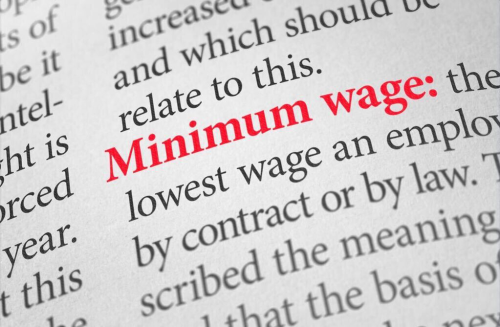There isn’t a single state in the country where an individual can afford a modest one-bedroom apartment at fair market rent on the current minimum wage. Not one. This shouldn’t be a surprise considering the increased cost of living over the years (inflation rates have jumped to 7.75% this year alone) and the stagnant federal minimum wage (which hasn’t been raised since 2009).
But what may shock you is just how far out of reach basic living standards are for low-wage workers in some states. In the state of Florida, a minimum-wage worker would have to work a whopping 86 hours a week to afford a one-bedroom, and 106 hours a week to afford a two-bedroom apartment; they would ultimately need to make $21.57/hr to afford a one-bedroom apartment comfortably. It’s safe to say Floridians are in dire need of an increased minimum wage that eases the financial burden they are currently experiencing.
The minimum wage was initially established by FDR in 1938 with the intention of being a living wage, the bare minimum working Americans would need to earn to afford basic necessities (rent, food, and other daily essentials).
According to MIT’s calculations, a livable wage for Floridians in 2020 was $12.39/hr. At the time, the state’s minimum wage was only $8.56/hr, clearly falling short of FDR’s original purpose during the Great Depression, in which the minimum wage was established to maintain “the minimum standard of living necessary for health, efficiency, and general well-being of workers.”
Thankfully, Florida’s voters agreed this was a problem (despite Republican Governor Ron DeSantis’ pleas otherwise), and in 2020 voted in favor of Amendment 2, which will increase the state minimum wage to $15/hr by 2026.
This one-dollar-a-year increase is significant, but like in many other parts of the country, $15 an hour is already obsolete. Just how much will a full-time minimum wage worker need to make by 2026? Way more than $15/hr – that’s for sure.
With such a dire cost-of-living crisis making it borderline impossible for many Floridians to survive, how is the state government responding? Gov. DeSantis is welcoming the rich with open arms and moving their tax burden onto the poor. The state’s regressive tax system allows the richest one percent of Floridians to pay just 2.3% of their incomes in state and local taxes while the state’s poorest 20% households pay 12.7%. The state of Florida is now home to 78 billionaires – the third most in the country – and taxing them would ensure that public goods and services that support regular Floridians are adequately funded. But DeSantis won’t do it, and won’t support raising the minimum wage.
Why? Maybe it has something to do with the over $100 million DeSantis raised from just two ultra-rich fundraising committees, committees with donors who have a vested interest in preserving a regressive status quo.
Who benefits from keeping the working poor from a living wage? What’s stopping state and local governments from raising the minimum wage? The short answer is the wealthy, and the long answer is, well, also the wealthy. The problem isn’t solely that the fight for a federal minimum wage of $15/hr just doesn’t cut it anymore in most states; it’s that the wealthy individuals and corporations who stand to benefit from lower wages have bought out our politicians.
Funneling millions into election campaigns guarantees the politician will favor legislation that focuses on maintaining billionaires’ wealth status, even at the cost of working Americans’ well-being. If this weren’t true, billionaires wouldn’t have donated a record-breaking $881 million to the 2022 midterm election (14 out of 20 billionaires reported backing Republican candidates), they wouldn’t have spent twice as much in elections as the Biden campaign, and they wouldn’t have been responsible for 1 out of every 10 dollars in donations received by campaigns during the 2020 election cycle.
With wealth also comes power, and the rich are not going to relinquish that control voluntarily.
But Florida should NOT be treated as simply a safe haven for a handful of billionaires; it’s home to millions of hard-working Americans that are struggling to make ends meet. Now is the time to demand fair wages and an equitable tax system before the cost of living is too far out of reach.
